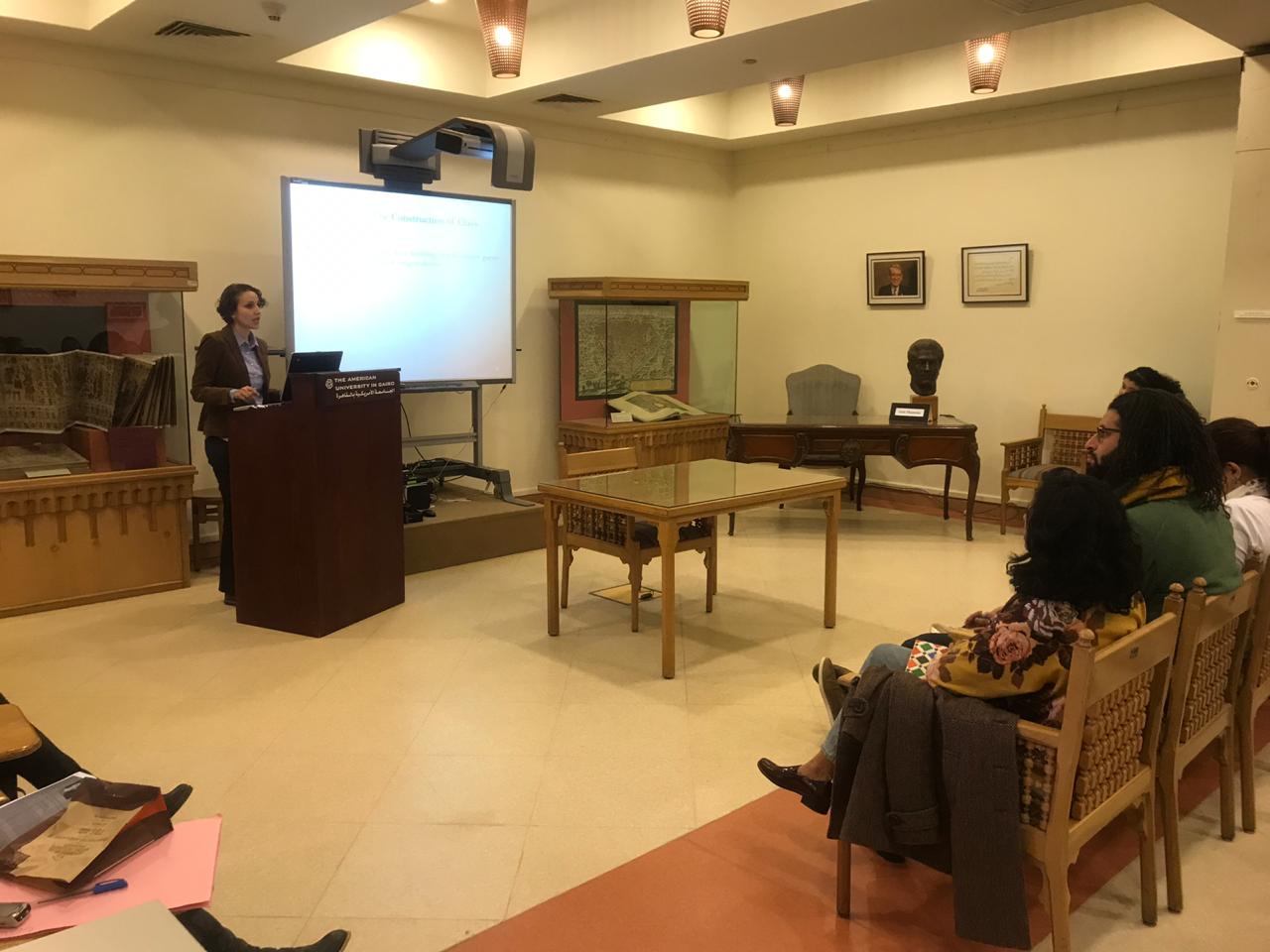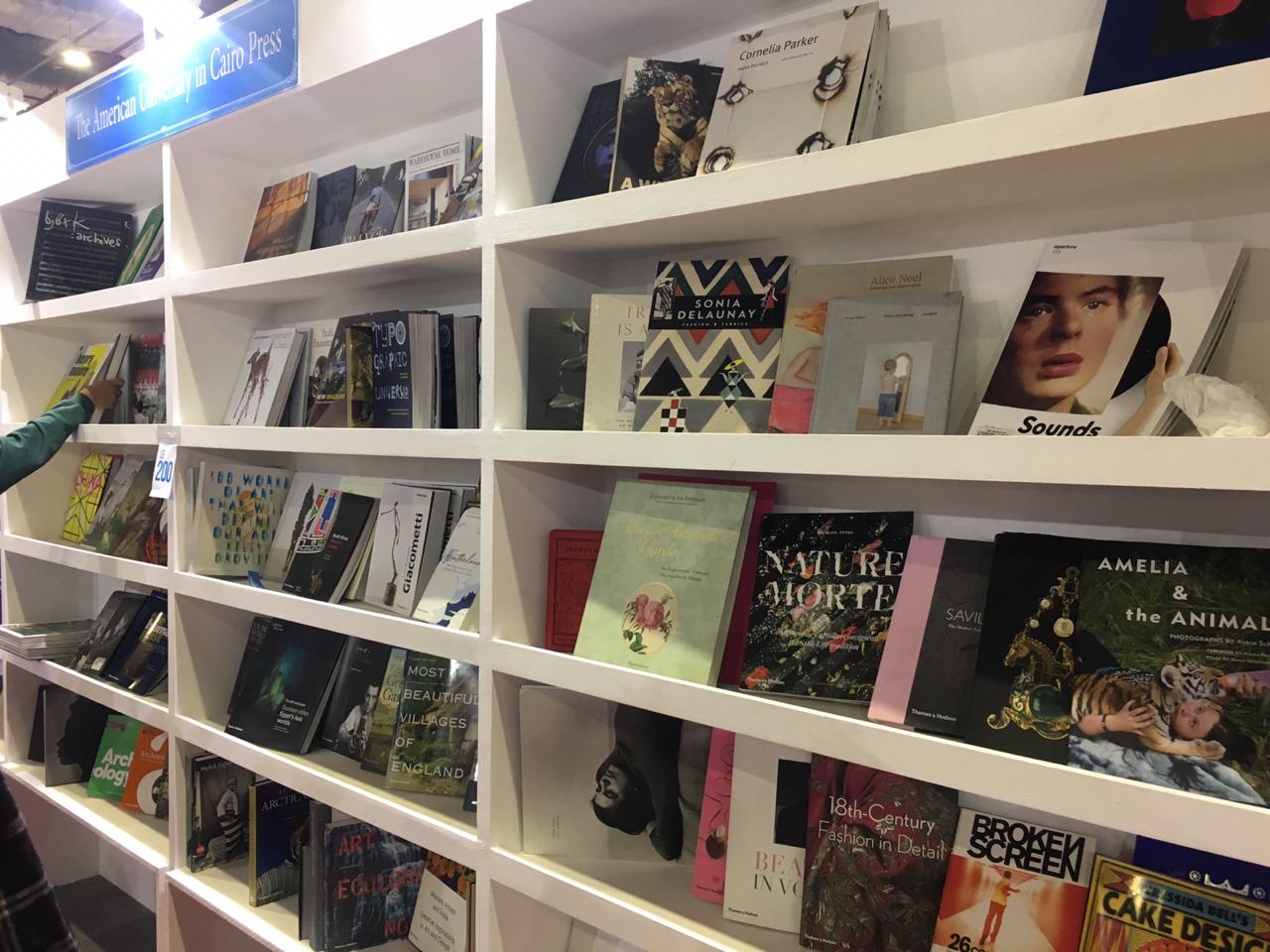In Marriage, Why Do Material Needs Outweigh All Else?
BY: Basant Samhout
@basantsamhout
Why is it that when Egyptian couples are presented with the options of timely marriage or its delay due to material trappings, they often choose the latter?
Assistant Professor of Sociology Rania Salem has been researching the answer to this enigma and presented her findings in a lecture titled ‘The Meanings of Matrimonial Exchange: Enactments of Class and Gender Among Egyptian Youth’ in the Nadia Niazi Mostafa Room on February 20.
Salem constructed semi structured interviews with 66 middle-class Egyptian engaged men and women from Cairo and Al Minya.
“Marriage is the only socially approved gateway to residential independence, sexual activity and childbearing,” Salem said, adding that it is also seen as a sign of economic self sufficiency and adulthood.
Therefore, the stalled transition to marriage due to material and fiscal constraints leaves youth suspended in limbo as they try to attain ‘social adulthood’.
Social adulthood, in this context, refers to the independence gained through economic achievement.
However, according to Salem, marriage costs are exorbitantly high in Egypt, even by international standards. The groom needs to save some three-and-a-half years worth of wages to be able to afford marital costs.
Salem’s interviewees identified financial difficulties as the main causes for delayed marriage. They say that they are burdened by high marriage costs and relatively poor earnings.
Some also blame the state for not providing appropriate wages or affordable housing; they also claim there is corruption in the distribution of government housing.
But is trying to forgo these costs even an option?
Salem says no.
Her research, although focused on the material impediments to marriage, moves further to examine the symbolism, culture, and gender roles reinforced by these expenses.
There are cultural protocols that also act as strong barriers to marriage if not followed. Adhering to matrimonial customs offers rewards like privilege, prestige and power in the social hierarchy.
Any other action is a step towards social exclusion.
“Many people, when they enter your apartment and see your gihaz (wedding preparations), say look at so-and-so, look what she’s bought. God bless her things. She’s bought things better than so-and-so’s things,” said Ghada, an interviewee from Al-Minya.
The protocols are not restricted to the material items needed for a marriage but even dictate the purchasing process itself.
The purchase of home furniture and appliances, ‘al gihaz’, are highly gendered, acting as a preliminary assignment of future gender roles in the marriage.
The groom is expected to cover most of the costs when purchasing furniture. In contrast, the bride is expected to purchase the kitchen appliances, linens, and in some cases rugs and curtains.
Women’s contributions presume a feminine interest in cooking and decorations, whereas men’s contributions reflect their role as breadwinners.
One of the men interviewed during the research said of his future wife, “she is the one standing in the kitchen so she will have a better understanding of what is needed.”
Another man said, “What would I do with an oven?!”
The complementary gender roles are reinforced through each side’s material contribution to the marriage.
The expenses are not just an attempt at gaining society’s approval. Salem clarifies that they act as assurances to the in-laws that their daughter’s welfare is intact.
Beyond that, the desire for material acquisition remains a reflection of a couple’s desires. Interviewees said that having these material goods before marriage would contribute to their own comfort.
“It is important for them to have all these goods in place before they marry rather than after they marry, because after they marry, they would basically have to worry about childbearing,” Salem said.
Delaying a marriage, however, does not come without its risks, as longer engagements risk conflict and judgment if not up to par with society’s expectations. The cultural emphasis on material possessions is of great influence, to the extent that some engagements falter over marriage expenses.
On the other hand, adhering to societal norms warrants better treatment from the in-laws and better overall perception by the community.
“Symbolic rewards for conforming to matrimonial customs perpetuate the institution of matrimonial transactions in spite of postponement of the marriage as a result,” Salem added.
The class, gender and cultural norms are reproduced with the implementation of this rite of passage in Egypt.
Any effort to stray away from the gender prescribed expenditures would raise suspicion about the groom’s and bride’s conformity to conventional gender roles.
Nevertheless, Salem added that “there is some wiggle room”, in making concessions in the name of love and romance.
For example, there is some room for deviation in terms of the quality of the material acquisitions, but not the gender division of the purchases.



